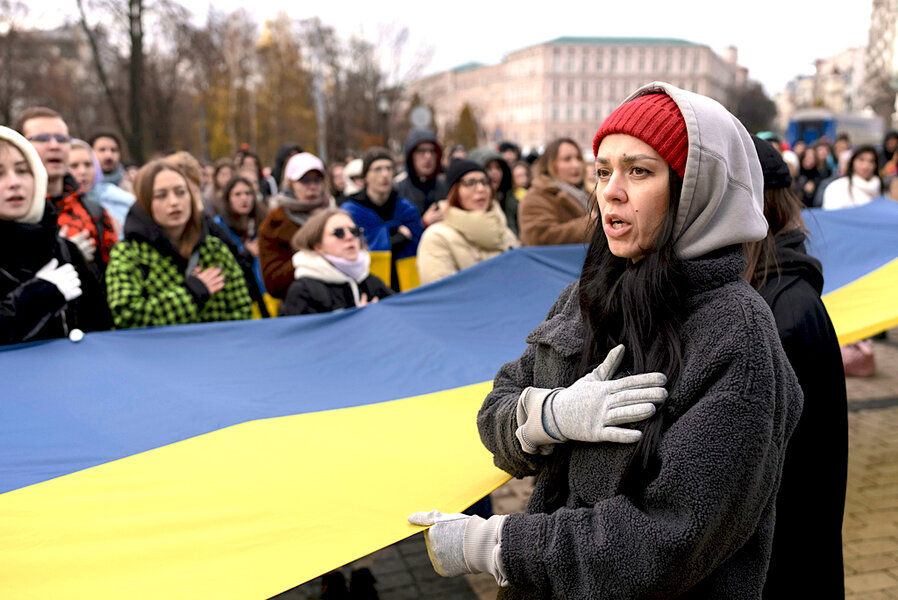Ukraine vanquishing the other enemy
Loading...
In Ukraine, where nearly two years of Russian attacks have destroyed the property of 1 in 6 people, a survey last month found a surprising result. Some 65% of those with damaged property – homes, cars, or businesses – did not apply for official compensation.
It was not that they didn’t need the money. Rather, more than a third said the government had more urgent priorities – like saving Ukraine as a sovereign nation. Some 12% said other people suffered worse and deserve support first.
Despite fatigue and disappointment with the war, Ukrainian “society continues to demonstrate maturity and willingness to compromise its own interests for the needs of others,” stated Anastasiya Mazurok, a deputy executive director at Transparency International Ukraine, a watchdog group that arranged the survey with support from the United States.
Demonstrations of selfless goodwill are crucial on two of Ukraine’s nonwar fronts: curbing corruption and preparing for postwar restoration with foreign aid. One other surprise in the November survey was that while fear of destruction from the war has fallen, perception of the risks of corruption has risen by 11 percentage points.
The reason for the increase is probably not that graft itself has gone up – despite recent high-profile examples. Rather, corruption has gained exposure under major reforms by government and concerns among foreign donors over potential misuse of aid. In addition, Russian propaganda has fed back reports of corruption into news coverage of Ukraine.
“The media is used to looking where there is bad, and not noticing what is already good” about anti-corruption efforts, stated Ms. Mazurok.
As the war settles into a long slog, Ukrainians have refocused on daily domestic issues. According to the survey, corruption in particular is viewed as an internal enemy nearly as much as Russia is as an external enemy. It is seen as a remnant of Soviet-era colonialism now being expelled by the lifting of democratic virtues in a cohering Ukrainian identity.
Fewer people are reporting personal experiences with daily corruption, finds Transparency International. A good example of how individuals want to help reinforce clean governance is the rising adoption of an app that allows citizens to pay for public services online and avoid interaction with government workers who might seek a bribe.
Ukraine’s progress in reforms has hastened the process of it joining the European Union. The EU’s top leaders will decide next week whether to proceed with Ukraine’s candidacy. “To see the deep and structural reforms that Ukraine is doing while fighting an existential war is to me deeply impressing,” said European Commission President Ursula von der Leyen last month.
Yet according to Transparency International, the real evidence of change is in the thinking of Ukrainians, noticed lately in how those with damaged property forgo compensation for the sake of both saving and rejuvenating their country.







